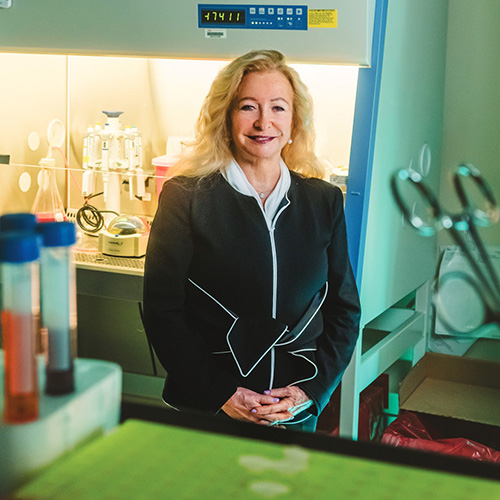Marianna K. Baum has funneled three decades of continuous funding from the National Institutes of Health toward building the scientific community’s understanding of the health challenges and consequences faced by those on society’s edge.
For the past eight years, she has followed more than 1,500 individuals who experience food and housing insecurity and often suffer with substance use disorder, HIV or both. She has followed an additional 4,000 members of underserved minority communities to track their uptake of COVID testing and vaccination. Inside Baum’s research clinic just north of downtown Miami, graduate students and staff interview study participants about their access to care and the social risk factors each faces. Her research has included studying the mechanism of liver disease and the effects of depression on inflammation, insomnia and diabetes. She has shown that poor quality of life increases cognitive impairment and that nutrient supplementation benefits those living with HIV.
Baum’s work has been shared in hundreds of publications and at international forums. She insists that society must care for every segment of its population and tirelessly pursues data to educate leaders in a position to improve the lot of those most often ignored and forgotten.
“Research helps inform the people who make the decisions. Public health policy depends on it.”

